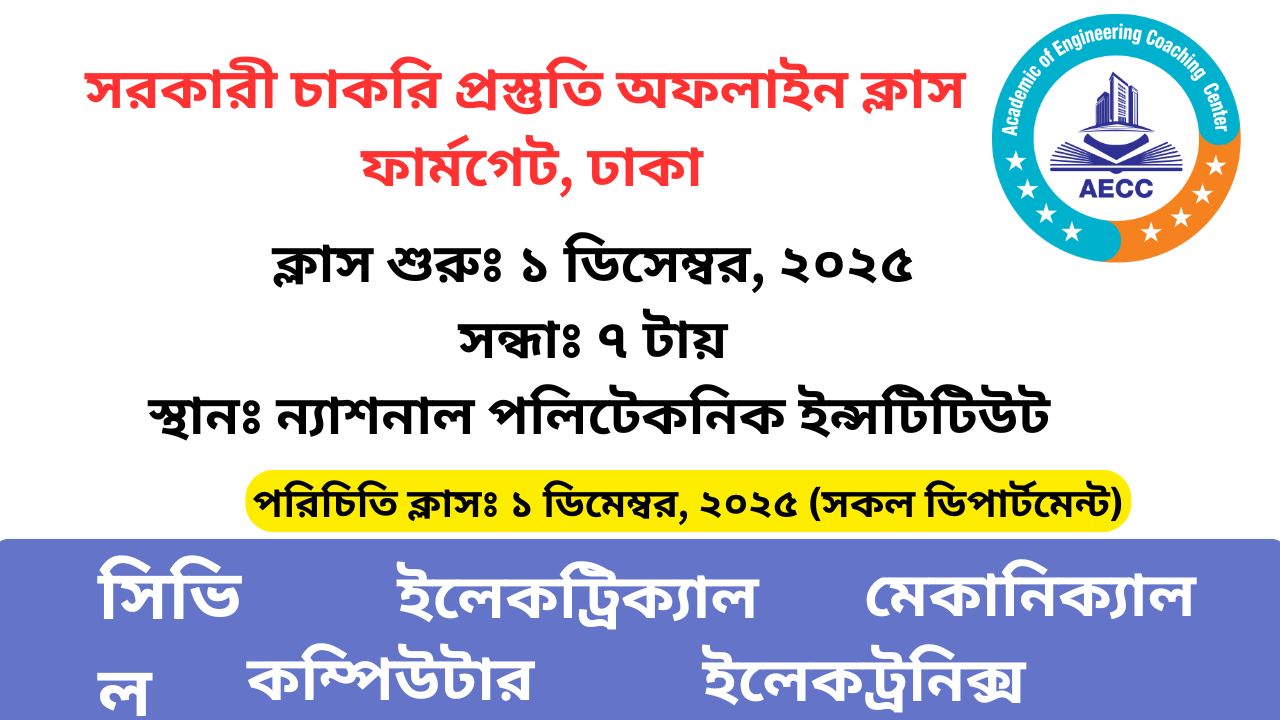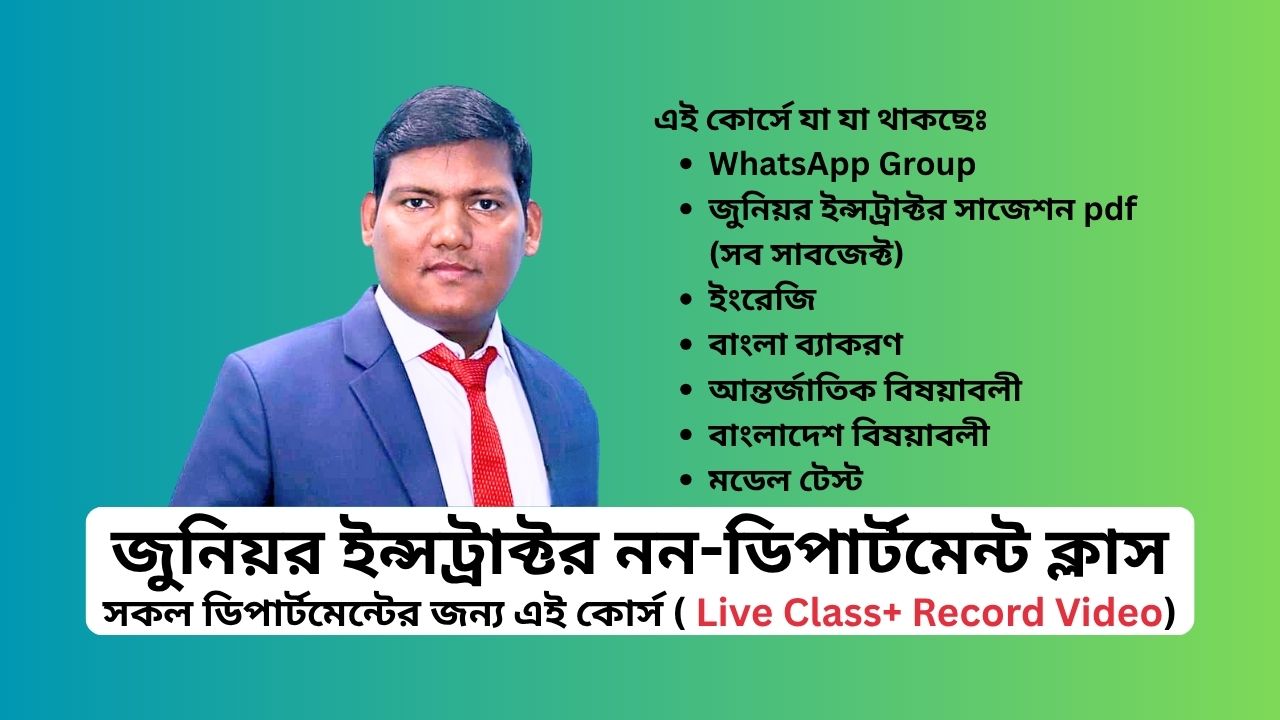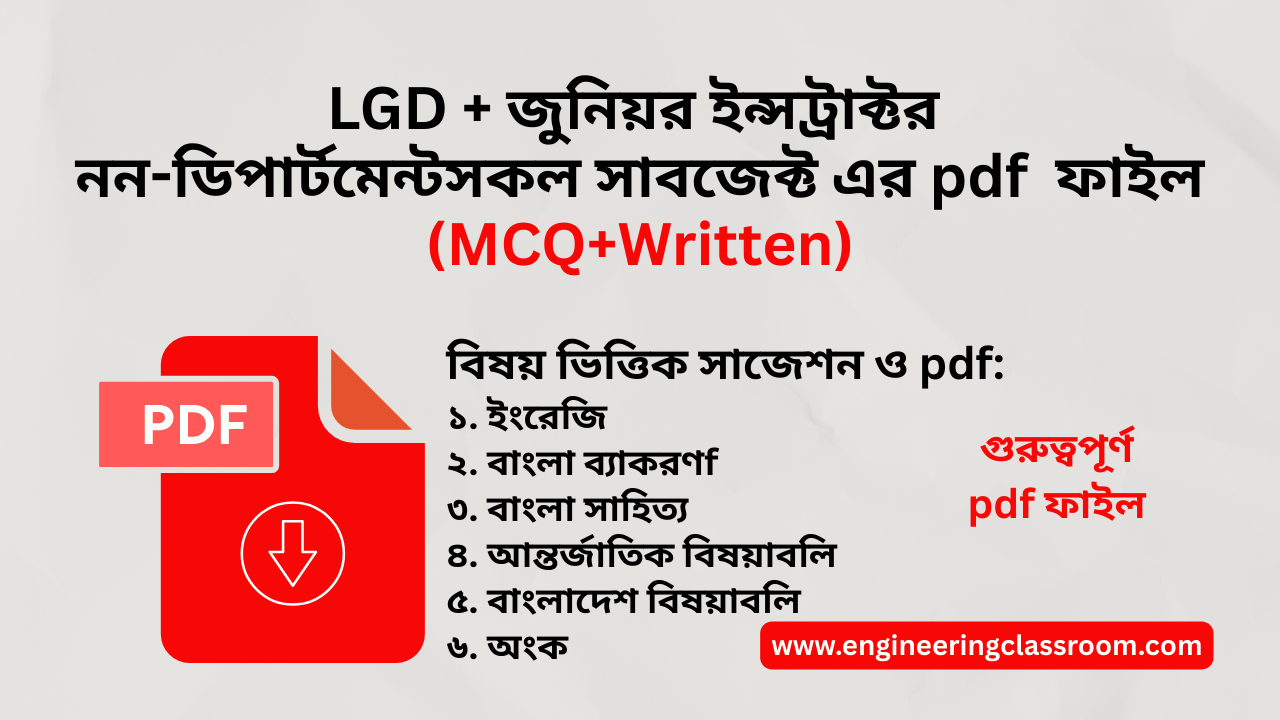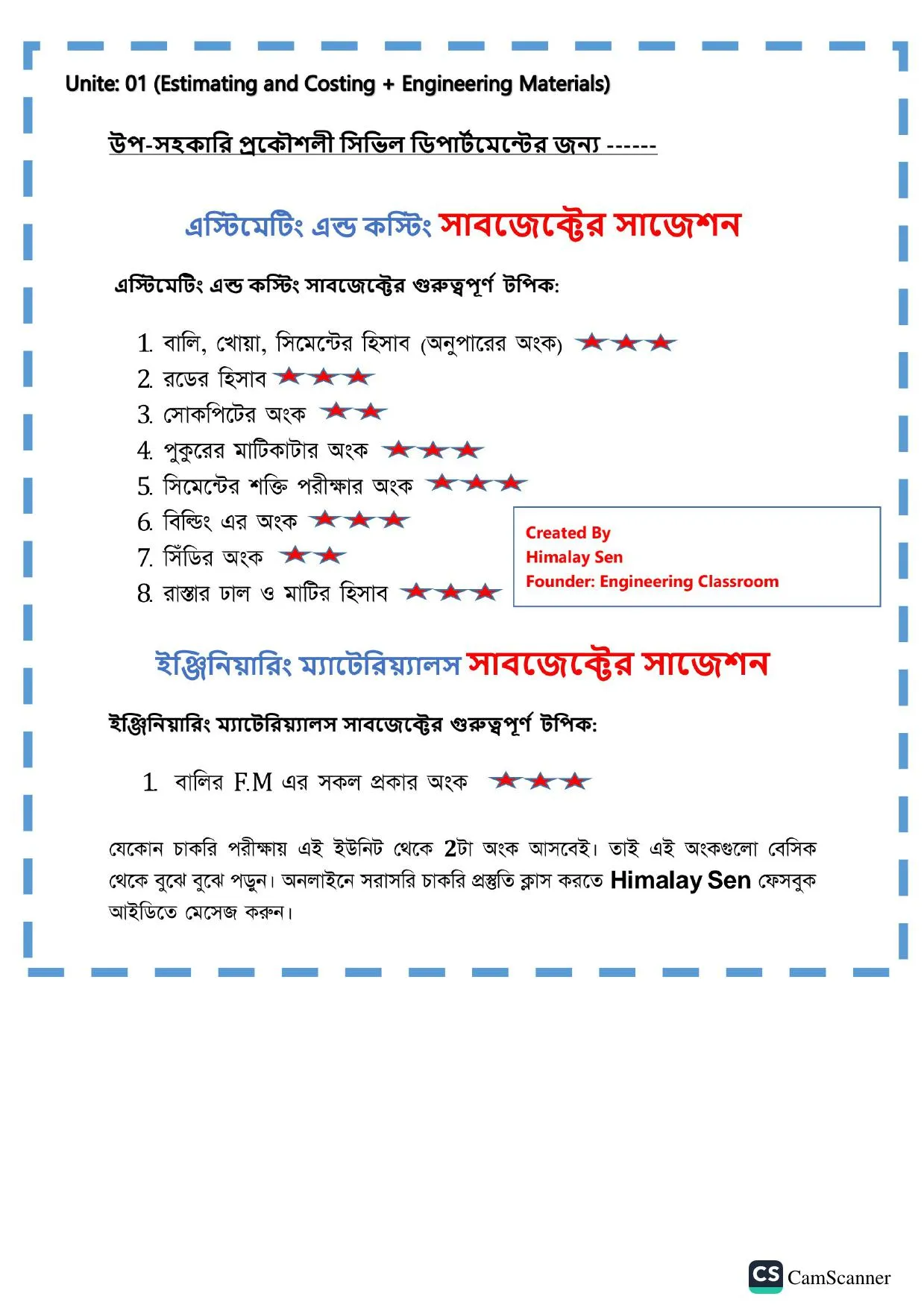MCQ
1781. Nila said, 'I must write a letter' The Indirect Speech-
Nila said that she had to write a letter.
Nila said that she has to write a letter.
Nila proposed to wrote a letter.
Nila said that she is going to write a letter.
1782. 'I will have a cup of tea', my father said. (Make it indirect)
My father said that he will have a cup of tea.
My father said that he would have had a cup of tea.
My father said that he had a cup of tea.
My father said that he would have a cup of tea.
1783. The indirect form of the sentence 'The Priest said to old woman, 'Can you tell me the way to the nearest church?' is-
The Priest asked the old woman if she could tell him the way to the nearest church?
The Priest asked the old woman if she could tell him the way to the nearest church.
The Priest asked the old woman if she could have told him the way to the nearest church.
The Priest asked the old woman if she would tell him the way to the nearest church.
ব্যাখ্যা: Interrogative sentence কে indirect narration-এ রূপান্তরের ক্ষেত্রে reporting verb কে ask-এ রূপান্তর করতে হয় এবং interrogative sentence-কে assertive sentence-এ রূপান্তর করতে হয় এবং reporting verb অনুযায়ী tense পরিবর্তিত হয়। সুতরাং সঠিক indirect narration হলো- The Priest asked the old woman if she could tell him the way to the nearest church |
1784. Select the correct narration of the sentence 'He said to me that I might come with him'.
He said to me, 'You may come with me'.
He said to me, 'I may come with him'.
He said to me, 'He may go with me',
He said to me, 'I could go with him'.
ব্যাখ্যা: প্রদত্ত বাক্যটিতে that তুলে দিয়ে reporting verb এবং reported speech দুটি অর্থে বিভক্ত করতে হবে। That পরবর্তী clause এর sub এবং ০৮ পরিবর্তিত হবে আর might may তে রূপান্তরিত হবে। সুতরাং বাক্যটির সঠিক narration হলো He said to me, "You may come with me."
1785. He said to me, 'Let me come in'. (Transform into Indirect speech)
He told me that he may come in.
He told me that he might be allowed to come in.
He told me that he is allowed to come in.
He told me that he may be allowed to come in.
ব্যাখ্যা: Let দ্বারা প্রস্তাব অর্থ না বোঝালে reporting verb-এর কোনো পরিবর্তন হয় না। Inverted comma উঠে that বসে + reported verb-এর sub পুনরায় বসে + might be allowed + reported speech-এর মূল verb থেকে শেষ পর্যন্ত বসে। সুতরাং সঠিক indirect speech : He told me that he might be allowed to come in .
1786. A waitress asked me if I would like to have a cup of tea. (Make it direct)
A waitress asked me, "Would you like to have a cup of tea?"
A waitress told me, "Would you like to have a cup of tea?"
A waitress wanted to know, "Would you like to have a cup of tea?"
A waitress said to me, "Would you like to have a cup of tea?"
1787. Change the narration. He said to me, 'Let us go home together.
He proposed to me to go home together.
He proposed to me that we should go home together.
He asked me to go home together.
He urged me to go home with him.
1788. Choose the appropriate reporting verb : 'She (said) that I should take a holiday'
informed
advised
told
requested
ব্যাখ্যা: That-এর পরে I should take a holiday থাকাতে বোঝায় যে ব্রাকেটযুক্ত verbটির জায়গায় advise বা suggest বসবে। কেননা advise বা suggest দ্বারা পরামর্শ প্রকাশ করায় that-এর পর should modal verbটি ব্যবহৃত হয়।
1789. What is the indirect speech of 'He said to her, 'Who is your favourite singer?
He asked who her favourite painter was.
He asked her who her favourite painter is.
He asked her who her favourite painter (singer হবে) was.
He asks her who her favourite painter was.
1790. Choose the appropriate reporting speech: Sara promised Sana, '-'
'I will like the new movie.'
'I will certainly help you tomorrow.'
'I will definitely dream about you tonight.'
'I will win the lottery and share the money with you.'
ব্যাখ্যা: Reported verb হিসেবে promise থাকাতে বোঝা যাচ্ছে যে reported speech-টি দ্বারা অঙ্গীকার বোঝাবে এমন বাক্য প্রয়োজন যা কেবল will certainly help you tomorrow দ্বারা সম্ভব। যার অর্থ আমি তোমাকে আগামীকাল অবশ্যই সাহায্য করব। তাছাড়া অন্যান্য বাক্যগুলো দ্বারা অঙ্গীকার প্রকাশ পায় না।
1791. She says, 'I did not finish my homework'. (Make it indirect)
She says that she had not finish her homework.
She says that she did not finish her homework.
She says that she was not finish her homework.
She says that she had not been finishing her homework.
1792. He said to one, "Is not your name Ahmed?" (Make it indirect)
I told him that his name is Ahmed.
He enquired one if his name was not Ahmed.
He enquired one if his name was not Ahmed.
He said that his name was Ahmed.
1793. He said to his master, 'Forgive me, sir'. The indirect speech is -
He begged his master to forgive him.
He requested his master to forgive him.
He beggad master for forgive him.
He requested master for forgiving him.
1794. The teacher said, 'Twice two makes four.' (Make it indirect)
The teacher told that twice two makes four.
The teacher said that twice two made four.
The teacher advised that twice two makes four.
The teacher suggested that twice two had made four.
1795. She said to him. "Are you an engineer"? Its indirect form of speech is:
She asked him that he was an engineer.
She said to him that he was an engineer.
She asked him if he was an engineer.
She said to him if he is an engineer.
ব্যাখ্যা: Yes অথবা no question-এর ক্ষেত্রে if বা whether বসে। Said to, asked-এ রূপান্তরিত হয়। আর simple present tense এ থাকলে তা simple past tense এ রূপান্তরিত হয়। সুতরাং বাক্যটির সঠিক indirect form হলো : She asked him if he was an engineer .
1796. He said, "where are my glasses?" Its indirect form is-
He asked where are my glasses.
He asked where were his glasses.
He asked where his glasses were.
He asked where his glasses had been.
ব্যাখ্যা: Wh question যুক্ত reported speech indirect এ wh word + sub + were (reporting verb অনুযায়ী) আর reporting verb asked এ রূপান্তর ঘটে। সুতরাং সঠিক indirect form হলো He asked where his glasses were.
1797. The correct indirect speech of - he said to me, 'Never move very fast.'
He forbade me to move very fast.
He requested me not to move very fast.
He said to me that I should not move very fast.
He told me don't move very fast.
1798. Change into indirect speech: 'Are you alone, my son?' asked a soft voice close behind me.
What I was doing there alone was asked by a soft voice.
A soft voice told me as his son and asked whether I was alone.
A soft voice form my behind asked me if I was alone.
Addressing me as his son a soft voice asked if I was alone.
ব্যাখ্যা: Direct speech এ my son দ্বারা সম্বোধন করা বোঝানোর কারণে addressing me as his son ব্যবহৃত হবে। সুতরাং বাক্যটির সঠিক indirect narration : Addressing me as his son a soft voice asked if I was alone I
1799. I said to the man, 'Who are you?'-What is the reported speech?
I asked the man who he was.
I asked the man who was he.
I asked the man who was he?
I asked the man who is he.
1800. Change the form of speech : They said, 'We cannot live without air'.-
They said that human cannot live without air.
They said that we cannot live without air.
They said that it is not possible to live without air.
They realized that people could not live without air.
ব্যাখ্যা: Reported speechটি চিরসত্য কথা তাই indirect narration এর ক্ষেত্রে verb-এর রূপ পরিবর্তন হবে না, সুতরাং প্রদত্ত বাক্যটির indirect narration : They said that we can not live without air.

















